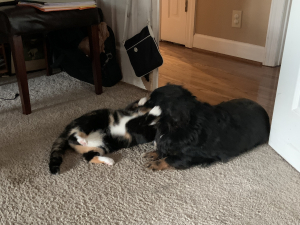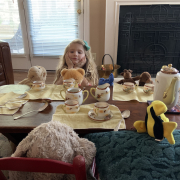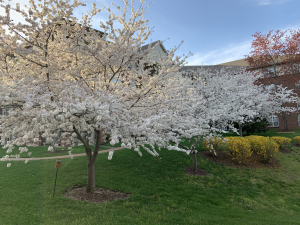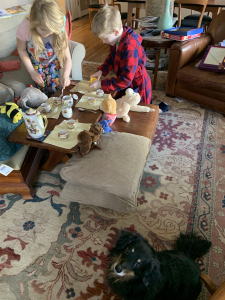It’s so hard to know what to do these days, isn’t it?
Watch the news, or turn it off? Cook like a rampaging mother of six, or support your local cafe with takeout, at the curbside, of course? Undertake a new hobby? (Spare me. Only the ultra-privileged would utter such nonsense.) Here’s one for writers: Can you list all the words you hope to never hear again, when this is finally behind us? (Hint: Mine starts with “unprecedented.”)
Who has the right advice? The most Zen approach for navigating? The most authentic social conscience? WHO KNOWS?
Through it all, one thread runs true and bright: We can’t control what is happening. Could that be the hardest part of all, for many of us? We destiny-slaying, choice-savoring, independent-at-all-costs souls, we can’t self-direct or self-actualize or self-whatever-the-hell-our way out of this one.
So, what CAN we do? What matters, at a time like this?
Pondering this question in the mirror the other morning, I found my gaze zooming in on an interesting dose of reality. The mirror was filthy. ICK! I barked out loud to the only nearby listener, the ever-vigilant Dachshund who shelters in place with me. This is GROSS! Have I been spitting toothpaste as a subconscious act of defiance? What sort of uncivilized pig lives in this house?
Dropping the gaze lower, I realized the sink was worse. Encrusted with, with, things that, ugh, things that should have passed through labyrinths of pipe and into another sub terrain eons ago. We’re in the middle of a pandemic, for God’s sake! How was I not seeing the surface of this sink?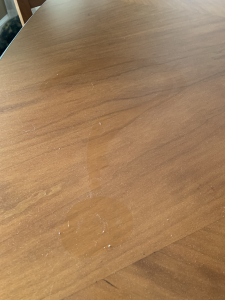
Suddenly, I was mad with motivation. Seizing the Windex, the Lysol, and the paper towels–and grateful to have any–I went at it like a trained operative on Seal Team Six. And a surprise awaited.
I liked it. I, who hate housecleaning like the proverbial plague, so to speak, liked it.
The euphoria of accomplishment was instantaneous and intoxicating. Restoring the shine to that glass, the smooth squeak to the counter surface, so clean it reflected back at me. Rubbing madly away, I thought feverishly, this MUST be done. THIS I can do. I can’t go out and save lives on the front line; I can’t protect my mother inside that senior facility; I have no jobs to offer those without work, no solace to offer for the fear around me or the desperate grief, shock, and confusion. There are still no answers for the questions that never end. But THIS moment, today, this inch forward, this tiny, microscopic accomplishment, too minuscule to even be visible to anyone else, THIS blow I can strike. This right here, this I CAN do.

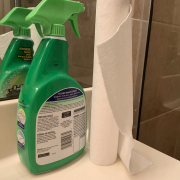

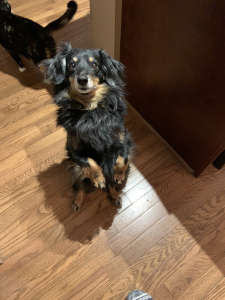
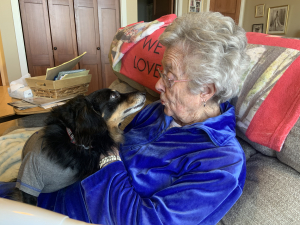 The other day I dropped onto the couch in a low moment, staring out the window in despair. I miss my daughter, my grandchildren, all my family, my friends, my co-workers, like we all do, of course. And I realized how fully my heart had finally relented toward this funny little dog when he jumped up next to me, and I encircled him in a crushing hug. I’m SO glad you are here, I told him. I don’t know what I would do, if you weren’t. I’m glad you let people hug you. Your predecessor, rest in peace, would never have tolerated such.
The other day I dropped onto the couch in a low moment, staring out the window in despair. I miss my daughter, my grandchildren, all my family, my friends, my co-workers, like we all do, of course. And I realized how fully my heart had finally relented toward this funny little dog when he jumped up next to me, and I encircled him in a crushing hug. I’m SO glad you are here, I told him. I don’t know what I would do, if you weren’t. I’m glad you let people hug you. Your predecessor, rest in peace, would never have tolerated such.